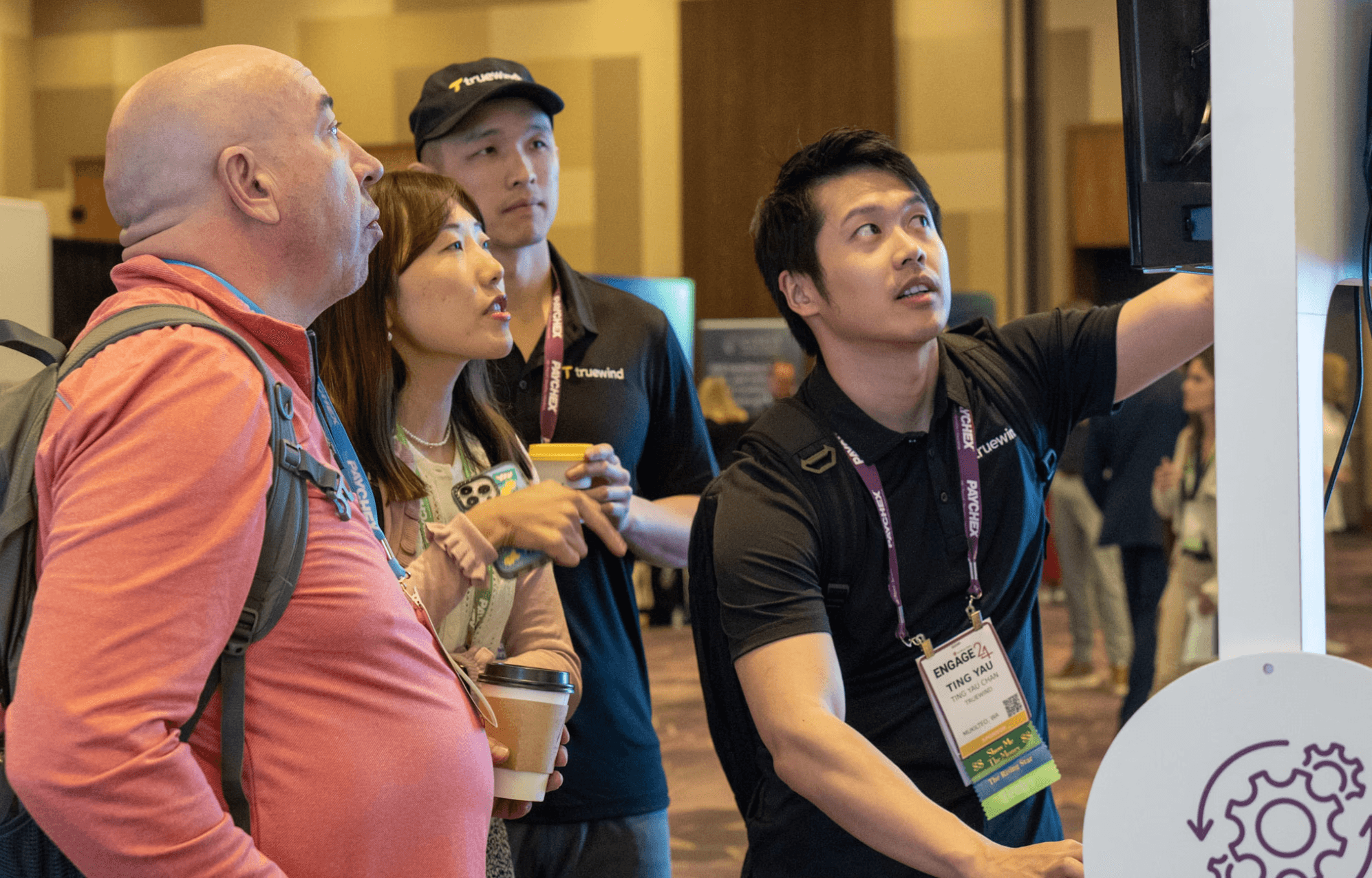Truewind’s 2025 Predictions: How AI Will Change Accounting
Truewind
Truewind’s 2025 Predictions: How AI Will Change Accounting Min Read
AI is moving fast—and accounting is coming along for the ride. In 2025, we’ll see big changes in how firms work, hire, and deliver value to clients. What started as basic automation keeps maturing into smarter, more specialized tools that pack a ton of power.
From AI solutions built for specific industries to the growing role of accountants as strategic advisors, the profession is changing faster than ever. To help firms handle what’s ahead, we spoke with Jia Ni, our Head of Architecture. Below, we get his top predictions on AI disrupting accounting, and how to stay ahead of the curve.
1. More Industry-Specific Solutions
In 2025, we’ll see more AI tools designed for specific industries. For context, sectors like restaurants, dental offices, construction, law firms, and landscaping still rely on manual, paperwork-heavy processes. These industries are underserved, creating huge opportunities for AI to simplify work and improve accuracy.
For example, we could see fully-developed versions of:
Restaurants using AI that connects financial reporting with inventory management, helping control costs and track profits in real time
Law firms automating trust account reconciliations or streamlining billing and compliance tasks
Construction companies getting AI-generated forecasts for project costs and timelines, helping them stay on budget and on schedule
Dental practices automating patient billing and handling insurance claims more smoothly
These tools won’t just save time; they’ll provide deeper insights and help accounting firms deliver more personalized, high-value services to their clients. As technology becomes more affordable and easier to build, we think that micro-SaaS startups will step in to fill these industry gaps. Their solutions will:
Solve complex, industry-specific accounting problems
Streamline day-to-day tasks and reduce errors
Help accounting firms offer more tailored services
2. A Tech-Savvy Workforce Becomes the Norm
AI isn’t just changing the tools accountants use—it’s changing the skills they need to succeed. In 2025, firms will place even more value on hiring accountants who understand AI and know how to work with data. Skills like data analysis, automation, and collaborating with AI-driven platforms won’t be optional; they’ll be expected.
To stay competitive, firms will need to invest in ongoing learning for their teams. This could include:
In-house training programs that teach employees how to use new AI tools
Workshops and certifications focused on systematic thinking, information architecture and working with no-code/low-code solutions to define custom automations
Hands-on learning opportunities that let teams experiment with small-scale automation
Firms that prioritize upskilling won’t just attract and keep top talent—they’ll build teams that can offer better insights and more proactive advice to clients.
However, embracing technology doesn’t mean leaving traditional accounting skills behind. Financial expertise will always matter. The real advantage comes from blending that expertise with AI tools to make faster, more accurate decisions.
In short, the most successful firms in 2025 will be the ones that build teams who are both tech-savvy and financially sharp.
3. Companies Will Refine Their “Build vs. Buy” Strategy
In 2025, accounting firms will be more strategic about how they invest in AI. The question won’t be if they should use AI, but whether to build custom tools or buy ready-made solutions. For firms, it'll be crucial to strike the right balance between the two.
Here’s how this strategy could take shape:
Custom-built tools will solve firm-specific challenges. For example, in-house IT teams might create lightweight apps that: automatically retrieve key documents, extract financial data, and flag unusual transactions for review.
Off-the-shelf solutions will fill broader workflow and reporting needs. Affordable AI software for standard tasks—like bookkeeping, invoicing, or expense management—will still be a smart buy for many firms.
Big firms, especially those in the Top 50, already have internal teams working on automation projects like robotic process automation (RPA). In 2025, these teams will expand their role by building more flexible, firm-specific tools that boost productivity and accuracy.
For companies, the key is knowing when to build and when to buy:
Build when customization gives the firm a competitive edge
Buy when scalable, pre-built solutions save time and money
4. Foundation Models Will Get Better at Reasoning
Foundation models like GPT will improve dramatically in 2025, especially when it comes to reasoning and handling industry-specific tasks. For accountants, this means AI tools will better understand context and manage more complex work. Imagine AI that not only spots mistakes in financial statements but also explains why they happened and how to fix them. These tools will grasp industry rules, accounting standards, and best practices, making their insights more useful and practical.
They’ll also handle compliance needs across industries like healthcare, real estate, manufacturing, and finance. This means more dynamic automation—AI won’t just follow rules, but will adjust to changing business needs.
Also, these improvements go beyond automating tasks. Smarter AI will help accountants make better decisions, offer more valuable advice, and identify growth opportunities for clients. In short, AI will shift from being just a tool to becoming a true partner, supporting accountants and freeing them up to focus on more important, high-value work.
What Accountants Should Do
2025 is shaping up to be a turning point for accountants ready to embrace AI. With more advanced solutions on the rise, the profession is evolving—and so are the opportunities. Accountants who adapt will work more efficiently, and offer even greater value to customers.
Here’s how to stay ahead:
Upskill Continuously
AI and data literacy are no longer optional; they’re essential. Accountants should:
Learn how to use AI tools to automate workflows and reduce manual tasks
Gain skills in data analysis to extract meaningful insights for clients
Pursue certifications or training in emerging technologies to stay competitive
Firms can support this by offering in-house training programs, workshops, or subsidizing professional development
Start Small with Automation
You don’t need to overhaul your entire tech stack overnight. Small, targeted automation can make a big impact. Start with:
Automating expense categorization to save time on routine tasks
Streamlining document retrieval for faster access to critical information
Redefine Client Relationships
AI is reshaping how accountants engage with customers. Stand out by:
Educating clients on how AI-driven insights can support their financial goals
Hosting strategy sessions that use AI-powered data to drive business decisions
Sharing customized AI reports that provide deeper, more actionable insights
Prioritize Data Governance and Security
With more AI tools in use, protecting sensitive client data becomes even more critical. Accountants should:
Work with IT teams to implement strong data security measures
Ensure compliance with data privacy regulations
Establish clear guidelines for how AI systems store, manage, and protect client information
Final Thoughts
AI is more than automation—it’s changing the foundation of accounting, and how firms operate. In 2025, smarter tools, industry-specific solutions, and advanced reasoning models will help accountants work faster, evaluate options more effectively, and provide deeper insights.
However, success won’t come from adopting every new technology. It’ll come from being intentional and strategic about where and how AI is used. Whether it’s automating routine tasks, enhancing financial forecasting, or expanding advisory services, the true value of AI is in saving time, and then using it to serve customers better.
Remember, the future of accounting isn’t about replacing people; it’s about enabling them to do more. Companies that recognize this—and merge AI with their team’s expertise—will be equipped to lead, adapt, and excel in 2025 and beyond.
Interested in learning more about Truewind and our AI-powered solutions? Chat with our team to get started.



